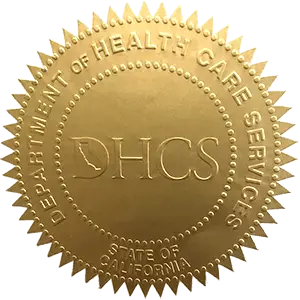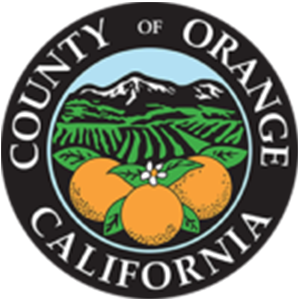Bipolar Disorder
Bipolar Disorder Treatment in Orange County, California
Bipolar disorder is biological in its origins, yet psychological in the experience of it; it brings in its wake almost unendurable suffering.
Bipolar disorder can completely uproot your life and wreak havoc on your relationships. It changes your mood, ability to function and energy, but there is Behavioral Health help available. Learn more about how to cope with bipolar disorder and begin your road to recovery.
Bipolar disorder is considered a brain disorder with extreme mood fluctuations and manic and hypomanic episodes. This disorder can make it difficult to have social interactions or to function in daily life. If you are seeking help in Orange County for bipolar disorder, here is what you need to know.


What Is Bipolar Disorder?
There are a variety of symptoms associated with bipolar disorder. It has three different diagnoses within its category. These diagnoses include:
- Bipolar I: To be diagnosed with bipolar I, you have to experience a manic episode. These are episodes where you may feel euphoric and on top of the world. You may also have an irritable mood. In addition to manic episodes, you may also have major depressive episodes that last for at least two weeks.
- Bipolar II: Bipolar II requires you to have at least one depressive episode and one hypomanic episode. Most people with bipolar II seek help after a depressive episode.
- Cyclothymic disorder: A milder form of bipolar disorder involving emotional ups and downs with less severe symptoms.
People with bipolar may also have other types of mental illness or other related disorders, such as substance abuse disorders, anxiety or ADHD.
What Are the Treatments for Bipolar?
When diagnosed with bipolar I or bipolar II, your treatments may look similar. You will need to consult with a mental health specialist to receive proper treatment.
Methods in Treating Bipolar Disorder
- Bipolar I: Medication is the most common treatment for bipolar I. Psychotherapy also helps patients understand their illness and prevent future episodes. Mood stabilizers correct imbalanced brain signaling.
- Bipolar II: For patients with bipolar II, their treatment resembles those available for patients with bipolar I. You may undergo medication and psychotherapy. Your specific symptoms determine the type of medication or treatment you require. Generally, you may be on a regimen of antidepressants and mood stabilizers.
If you are ready to begin your Behavioral Health wellness journey, contact us today at Story Wellness. We are dedicated to providing you tailored treatments for bipolar disorder and other mental health conditions to better your life.
Frequently Asked Questions
What Is Bipolar Depression and How Is It Different From Regular Depression?
Bipolar depression is a type of depression experienced by individuals with bipolar disorder. Unlike depression, bipolar depression alternates with episodes of elevated mood or mania. During bipolar depressive episodes, individuals may feel extreme sadness, fatigue, and loss of interest in daily activities.
A key difference lies in the fact that, after these depressive states, depressed patients may transition into hypomanic or manic phases, which is not the case with typical major depression. A comprehensive plan for bipolar disorder is required to treat bipolar depression.
Can Bipolar Disorder Cause Psychotic Symptoms?
Yes, individuals with bipolar disorder may experience psychotic symptoms during severe manic or depressive episodes. These may include hallucinations or delusions that align with the mood episode like grandiosity during mania or feelings of worthlessness during depression. Managing these symptoms often requires a combination of mood stabilizing medication and antipsychotic drugs.
Are Mood Disorders Different From Mental Disorders?
Mood disorders represent a category within mental disorders, which include conditions affecting emotional states, such as bipolar disorder and major depression. While mental disorders encompass a wide range of psychiatric conditions like anxiety disorders and schizophrenia, mood disorders specifically involve disruptions in energy, mood, and emotions.
How Does Bipolar II Disorder Affect Patients Differently From Bipolar I?
Bipolar II disorder is characterized by hypomanic episodes, which are less severe than full manic episodes, and depressive episodes. Individuals with this condition might often seek help due to frequent periods of depression, unlike bipolar I patients who experience acute mania. Treatment typically includes mood stabilizers and psychotherapy.
What Are Manic and Depressive Symptoms?
People with bipolar disorder experience depressive and manic phases that have different mood symptoms. The depressive phase involves prolonged sadness, hopelessness, and low energy, while the manic phase includes elevated mood, increased energy, and impulsive behaviors. These phases impact functioning differently, requiring tailored treatment to address both extremes.
What Treatments Are Used for Severe Depression in Bipolar Disorder?
Treating severe depression in bipolar disorder often requires a combination of psychotherapy, mood stabilizers, and, in some cases, selective serotonin reuptake inhibitors (SSRIs). However, SSRIs should be used cautiously to avoid triggering manic or hypomanic episodes.
How Do Stressful Life Events Affect Bipolar Disorder?
Stressful life events, such as losing a loved one or financial difficulties, can act as triggers for episodes of mania or depression in individuals with bipolar disorder. Managing stress through therapy, lifestyle changes, and coping strategies is crucial in preventing relapses.
Why Is Long-Term Treatment Important for Managing Bipolar Disorder?
Long-term maintenance treatment is essential to treat bipolar disorder because it helps stabilize mood fluctuations and prevents relapse. Ongoing use of mood stabilizing medication, anti-psychotic drugs, therapy, and periodic follow-ups with a mental health professional ensures better control over symptoms and improves mental health conditions.



